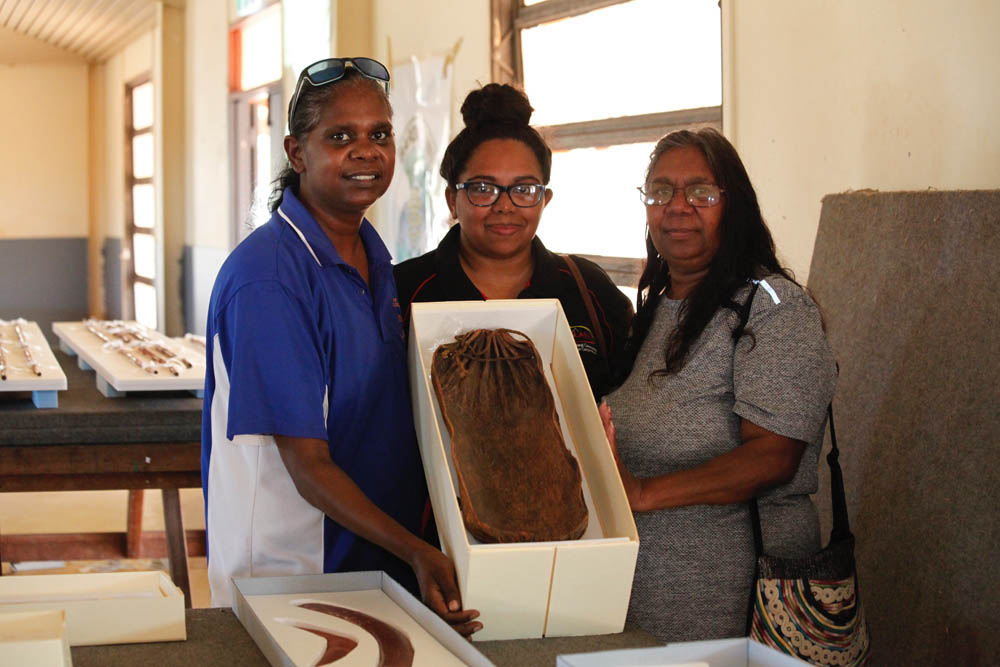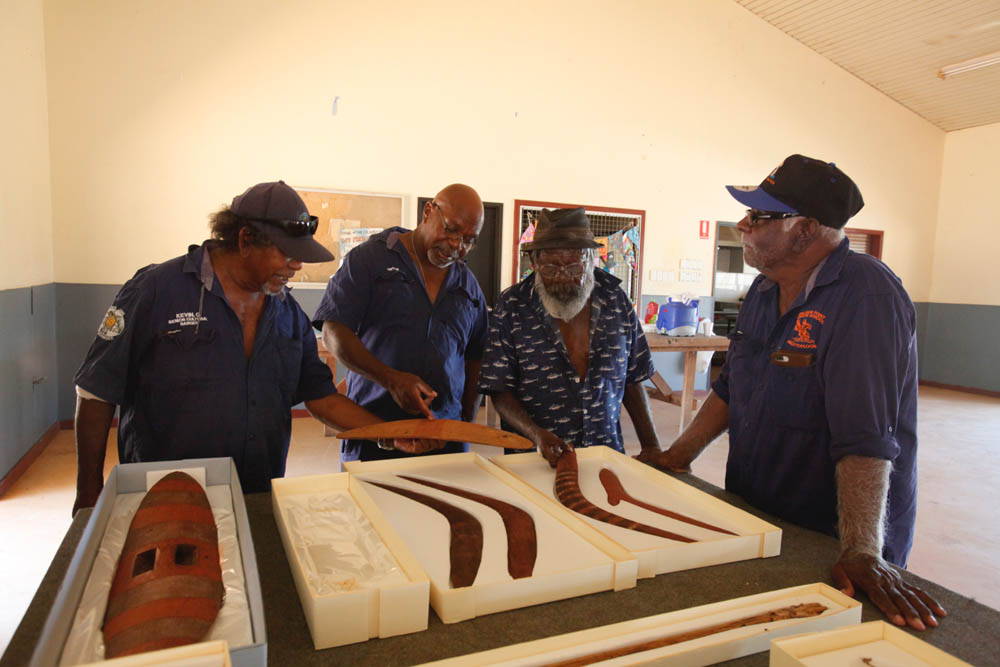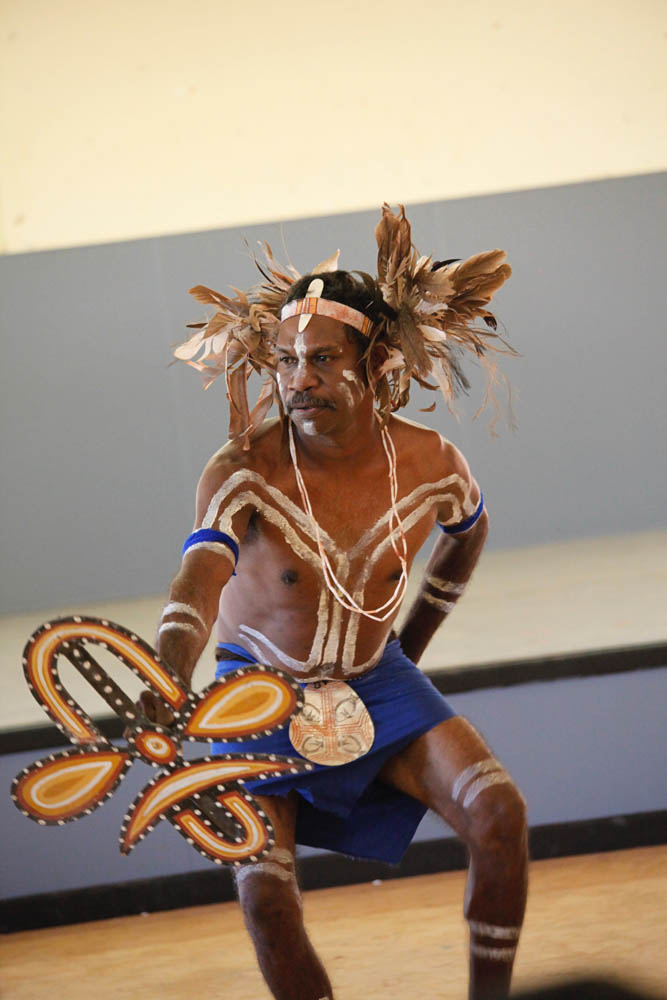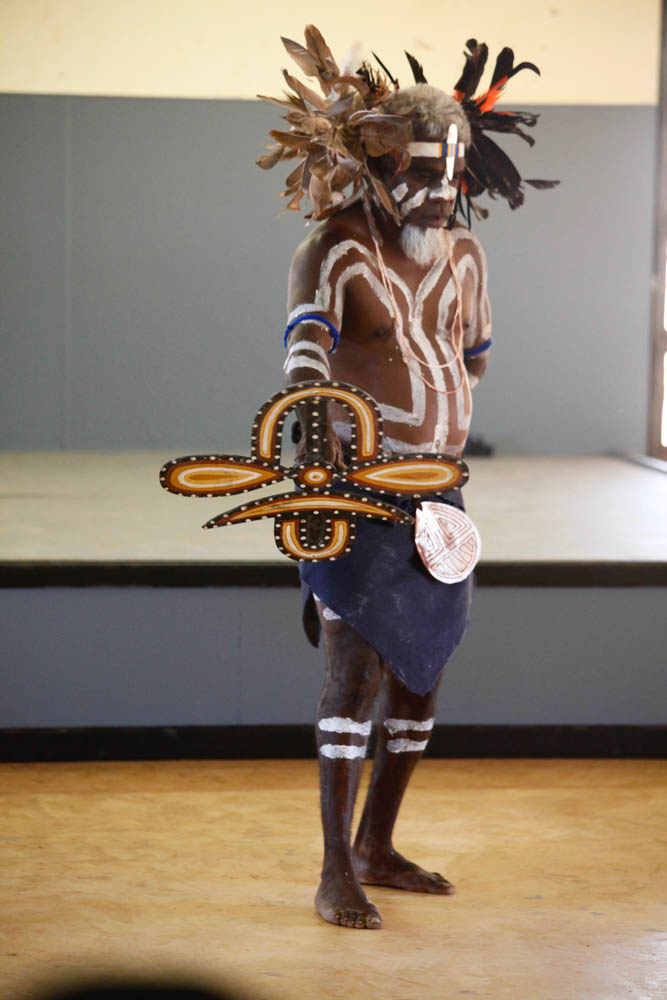The Bardi Jawi Nation at Ardyaloon (One Arm Point), Western Australia, officially celebrated the return of 31 items from the Illinois State Museum, United States of America.
The objects were returned in 2019 under the highly successfully Return of Cultural Heritage (RoCH) project led by the Australian Institute of Aboriginal and Torres Strait Islander Studies (AIATSIS). However due to the impact of the global pandemic, the on Country celebrations to mark the significant occasion were delayed.
The celebration at Ardyaloon demonstrates how returned artefacts are being brought back to life and re-incorporated into the rich cultural practices of the Aboriginal and Torres Strait Islander communities.
Senior Lawman and Senior Cultural Ranger for the Bardi Jawi Rangers Kevin George, said, “It was like I was going back in time, to be standing there next to the person who made it [the items]. You get a sense of the person’s presence. And they told us to look after and to cherish these things.”
“Everyone felt the same way, the children, the Bardi men and Bardi women, the Bardi aunties and uncles. The other people in the community too, everyone was joyful and respectful and loved it.”
The RoCH project successfully demonstrates there is a strong desire from Aboriginal and Torres Strait Islander communities to have their material returned and a willingness from overseas collecting institutions to support this process. In July 2020 the Australian Government announced a further $10 million to extend RoCH for another four years to June 2024.
AIATSIS CEO Mr Craig Ritchie said, “Having these objects in the hands of the Bardi Jawi dancers shows how important it is to have this material in the care of its traditional custodians. To know Community Elders passing on their knowledge about these objects demonstrates the intergenerational impact repatriation has in unifying the community and supporting cultural resurgence.”
Despite the challenges and impact of COVID-19, AIATSIS is still working closely with Aboriginal and Torres Strait Islander communities across Australia to secure the return of significant cultural heritage material from overseas collecting institutions, governments and private holders.



